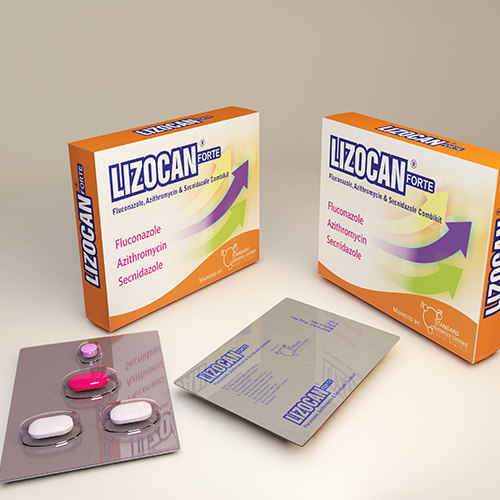Bitenol-100
Bitenol is indicated in the management of hypertension. It may be used alone or concomitantly with other antihypertensive agents, especially with a thiazide-type diuretic.
Therapeutic Class
Dosage Form & Composition
Pharmacology
Bitenol (atenolol) is a synthetic, beta-1 selective adrenoreceptor blocking agent. Chemically, it is benzeneacetamide, 4-[2’-hydroxy-3′-[(1-methylethyl) amino]propoxy]-phenyl-acetamide. Bitenol is available as 50 mg and 100 mg tablets for oral administration.
Indications
Bitenol is indicated in the management of hypertension. It may be used alone or concomitantly with other antihypertensive agents, especially with a thiazide-type diuretic.
It is also indicated in long term management of agina pectoris due to coronary atherosclerosis and in the management of haemodynamically stable patients with definite or suspected acute myocardial infarction to reduce cardiovascular mortality.
Contra-indications
Bitenol is contraindicated in sinus bradycardia, heart block greater than first degree, cardiogenic shock, and overt failure.
Precautions/Warnings
Bitenol is to be administered cautiously in patients who have congestive heart failure controlled by digitalis and/or diuretics. Bitenol and digitalis slow A-V conduction.
Bitenol should be withdrawn in a continued depression of the myocardium because it may lead to cardiac failure.
Patients with coronary artery disease being treated with Bitenol should be advised against abrupt discontinuation of therapy.
PATIENTS WITH BRONCHOSPASTIC DISEASE SHOULD IN GENERAL, NOT RECEIVE BETA BLOCKERS.
This is because of its relative beta-1 selectivity; however Bitenol may be used with caution in patients with bronchospastic disease who do not respond to, or cannot tolerate other antihypertensive treatment Bitenol should be used in therapy with initial dose of 50 mg while a beta-2 stimulating agent (bronchodilator) should be made available.
This is because beta-1 selectivity is not absolute. Bitenol like other beta blockers is a competitive inhibitor of beta-receptor agonists and its effects on the heart can be reversed by administration of such agents, e.g. dobutamine or isoproterenol with caution.
Bitenol should be used with caution in diabetic patients because it may mask tachycardia occurring with hypoglycemia. It may mask tachycardia in hyperthyroidism. Bitenol should not be given to patients with untreated pheochromocytoma.
Bitenol can cause foetal harm when given to a PREGNANT woman.
Bitenol crosses the placental barrier and appears in cord blood. Neonates born to mothers receiving Bitenol at parturition or breast feeding may be at risk for hypoglycemia and bradycardia.
Caution should be exercise when Bitenol is administered during pregnancy or to a woman who is breast feeding.
Adverse Effects
Most adverse effect of Bitenol have been mild and transient.
The commonly reported side effects are bradycardia, postural hypotension, dizziness, headache, confusion, numbness of fingers and toes, cold hands and feet, cramp-like pain in calves, dry mouth, psychoses or halluanations, GIT disturbances, dry eyes, skin rashes, reversible hair loss, visual disturbances, tiredness, pins-and-needles, impotence.
Dosage & Administration
In hypertension, the initial dose of Bitenol is 50 mg tablet a day either alone or added to diuretic therapy. The full effect is normally seen within 1-2 weeks. If optimal response is not achieved, the dosage should be increased to Bitenol 100 mg given as one tablet a day. Bitenol may be used alone or concomitantly with other antihypertensive agents including thiazide-type diuretics, hydralazine, prazosin and alpha-methyldopa.
In Agina Pectoris Bitenol 50 mg is given as the initial dose of one tablet a day. If there is no optimal response within one week, the dosage should be increased to 100 mg. Bitenol as a single tablet per day. Some patients may require 200 mg once a day to obtain optimal effect.
OVERDOSAGE:
Symptoms of overdosage of Bitenol are: lethargy, respiratory drive disorder, wheezing, sinus pause, bradycardia, congestive heart failure, hypotension, bronchospasm and/or hypoglycemia.
Treatment of overdosage should be towards removal of any unabsorbed drug by inducing emesis, gastric lavage or administration of activated charcoal.
Bitenol can be removed from general circulation by haemodialysis. Other treatment which may be at the physician discretion may include:
Bradycardia: Atropine IV if there is no response to vagal blockade, give Isoproterenol cautiously.
In refractory cases, a transvenous cardiac pacemaker may be indicated.
Heart Block (2nd or 3rd Degree): Isoproterenol or transvenous cardiac pacemaker.
Cardiac Failure: Digitalize the patient and administer a diuretic. Glugacon has been reported to be also useful.
Hypotension: Vasopressors such as dopamine or norepinephrine should be given. Monitor blood pressure continuously.
Bronchospasm: A beta-2 stimulant such as isoproterenol or terbutaline and/or aminophylline is useful.
Hypoglycemia: IV glucose should be given.
Storage/Handling Recommendations
Do not store above 25 degreeOC in a dry place and protect from light.
Keep out of reach of children.







Reviews
There are no reviews yet.